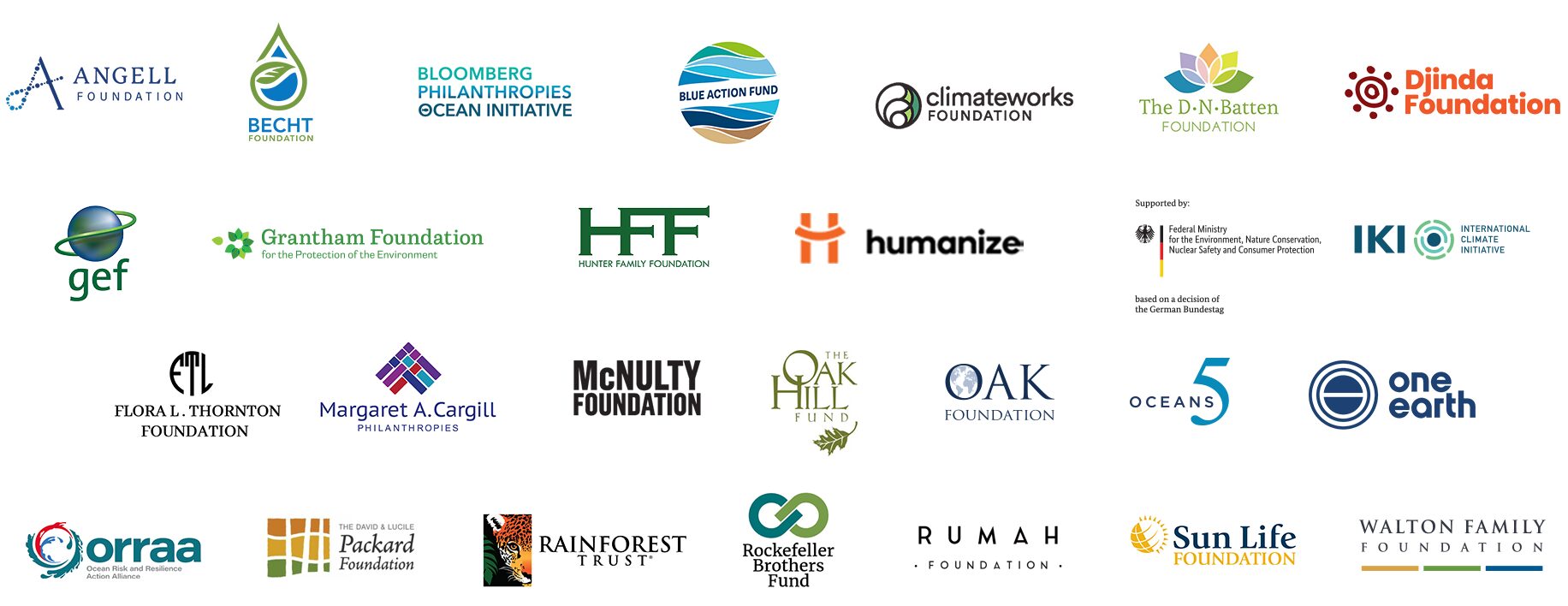Fish Forever Progress Update #45
Advancing community-led ocean conservation at the United Nations Ocean Conference
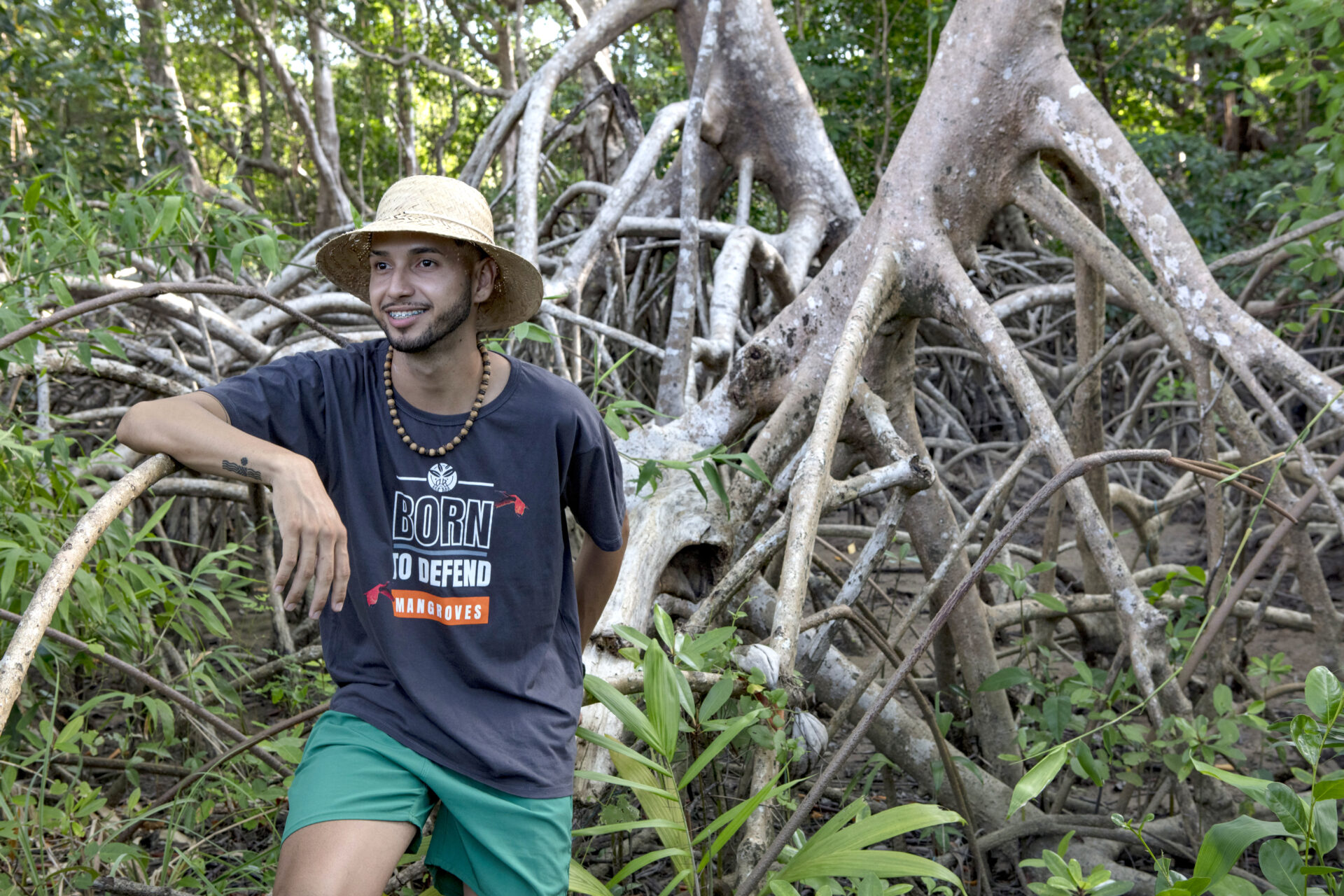
Rare at UN Ocean Conference
Rare elevated community-led ocean conservation in June at the United Nations Ocean Conference in Nice, France. We highlighted mangrove conservation, ocean-climate action, and innovative finance while building momentum with partners and funders. Ten Coastal 500 leaders joined panel discussions with global ocean advocates, helping shape the Nice Ocean Action Plan’s call for greater investment in local leadership to meet international goals like 30×30 and Sustainable Development Goal 14 Life Below Water.

Jong-Jong Balansag, fisher and shuttle boat operator in Roseller T. Lim. Photo Credit: Mark Aposaga for Rare
Rare joins Revive Our Ocean coalition
Rare joined Revive Our Ocean, a collective of best-in-class organizations working to create effective locally led marine protected areas. As a collective member, Rare will accelerate community-led marine protected areas in the Philippines and Indonesia, supporting local leaders and communities in scaling sustainable fisheries management and coastal protection.

A new report on financing blue carbon strategies
Rare, Conservation International, and the International Blue Carbon Institute recently published a new report, “Beyond Carbon Credits: Demystifying Non-Market Approaches for Blue Carbon Ecosystems.” Designed for decision-makers and practitioners, the guide explores blue carbon financing instruments and navigates non-carbon market approaches (NCMAs).

Melay and Boy Casanillo, seaweed farmers, Zamboanga Sibugay, Philippines.
Conserving biodiversity and restoring ecosystems in the Philippines
Rare is co-leading the biodiversity pillar of TRANSCEND — a five-year Philippines-Germany partnership to tackle climate change and biodiversity loss. In collaboration with Conservation International Philippines and the Foundation for the Philippine Environment, Rare is scaling behavior-centered, community-led fisheries management and building the capacity of grassroots organizations to support 55,000 fishers across Luzon, Visayas, and Mindanao islands.
Trujillo celebrates its 500th anniversary with a new marine protected area
To mark its 500th anniversary, Honduras’s Trujillo community hosted a parade and community events that brought together fishers, mayors, local communities, Rare, and partners. During the celebration, the municipality, the Forest Conservation Institute (ICF), and the Garifuna Emergency Committee of Honduras (CEGAH) signed a co-management agreement for the Trujillo Site of Importance for Marine Wildlife (SIPVSM) — establishing a new managed access area with reserve and reinforcing Colón‘s commitment to marine conservation and participatory governance.

Rocky Sanchez Tirona, Rare’s Managing Director of Fish Forever.
The push for 30×30 ocean protection goals needs to be locally led
In an opinion piece for Dialogue Earth, Rare’s Rocky Sanchez Tirona explains how community-managed marine protected areas are critical to supporting coastal communities’ livelihoods, safeguarding biodiversity, and recovering coastal ecosystems. “Giving mayors and their communities the power to design and declare locally managed MPAs can speed up the establishment of protected areas,” she said.
Program Highlights
- Rare’s Global Hub for Collaboration and Learning expanded flexible learning resources for core topics in coastal fisheries and tested tools to support science-driven, community-led coastal resource management through social, economic, and ecological data.
- In Guatemala, Rare hosted the “Weaving the Future of Our Fisheries” event in the city of Puerto Barrios in Bahia de Amatique and launched the Pesca Unida campaign, a movement to strengthen artisanal fishing identity, promote gender inclusion, and reinforce community leadership.
- In the Philippines, Rare and the Department of Agriculture–Bureau of Fisheries and Aquatic Resources (DA-BFAR) co-hosted a forum in Quezon City in Manila on coastal law enforcement, bringing together Bantay Dagat (fish warden) volunteers, local government officials, law enforcement agencies, nongovernmental organizations, and coastal community leaders.
- In Mozambique, Rare welcomed Board of Trustees members for a high-level field visit to deepen their understanding of Rare’s impact and opportunities for future growth.
- In Brazil, Rare participated in the High-Level Meeting with the State Governor and subnational authorities to strengthen collaboration between climate leadership and Brazilian subnational governments before COP 30.
- In Indonesia, 37 villages across nine managed access areas with reserves in Southwest Sulawesi recently committed IDR 104 million (USD 6,500) from their Village Government funds to support co-led marine surveillance and reporting.
Innovative Finance
New investment-ready planning tool for climate financing: Rare launched a new financial model to help local governments plan and budget for sustainable coastal management. Five municipalities in the Philippines tested the tool and we are adapting it in Mozambique. With global potential, this tool can help channel climate resilience funding directly to the communities that need it most.
Small-Scale Fisheries Impact Bond advances toward first verified outcome: As part of the Small-Scale Fisheries (SSF) Impact Bond’s implementation, Rare is working with the Kulisusu Utara 1, Mawasangka Tengah, and Lasalimu coastal communities in Southwest Sulawesi to progress toward legally defined managed access areas with reserves boundaries, targeted for early 2026. Rare recently partnered with Levoca, one of the original architects of outcomes-based financing, to lead the adaptive management process and help refine activities to maximize the pilot’s efficiency for future scaling efforts.
Designing coral reef insurance for restoration and resilience: Rare helped create a parametric insurance model for coral reefs in Siargao, Philippines, as part of an Asian Development Bank (ADB) initiative. Anchored in community stewardship and early local restoration capacity, the model aims to make nature-linked insurance viable and locally owned. With strong insurer interest and $600M in reef value at stake, Rare and partners are exploring a national pilot. This work complements our broader push to embed risk financing in coastal resilience, including active parametric insurance pilots for fishers.
Casa De Ucides advances community-owned business for sustainable crab harvest: Rare, in partnership with Villa Floresta, supported a participatory process to shape Casa De Ucides, a crab-focused, community-owned business in Brazil’s Soure Resex in Pará state that combines environmental stewardship with market opportunity. Through workshops with crab harvesters, women leaders, youth, Company for Technical Assistance and Rural Extension (EMATER), the Chico Mendes Institute for Biodiversity Conservation (ICMBio), Federal University of Pará, and local governments, the team co-developed Casa De Ucides’ value proposition, impact model, governance structure, and sales strategy.
Global Hub for Collaboration and Learning
Scaling learning tools for diverse audiences: Rare’s Global Hub for Collaboration and Learning expanded flexible learning resources for core topics in coastal fisheries to enhance accessibility for diverse audiences and scaling partners. The team tested tools to boost sustainable behavior adoption in Guatemala, Micronesia, and the Philippines, supporting science-driven, community-led management of coastal resources through social, economic, and ecological data. Rare also created new guidance to design Gender, Equality and Social Inclusion (GESI) training and conduct a GESI Validation Workshop with stakeholders.
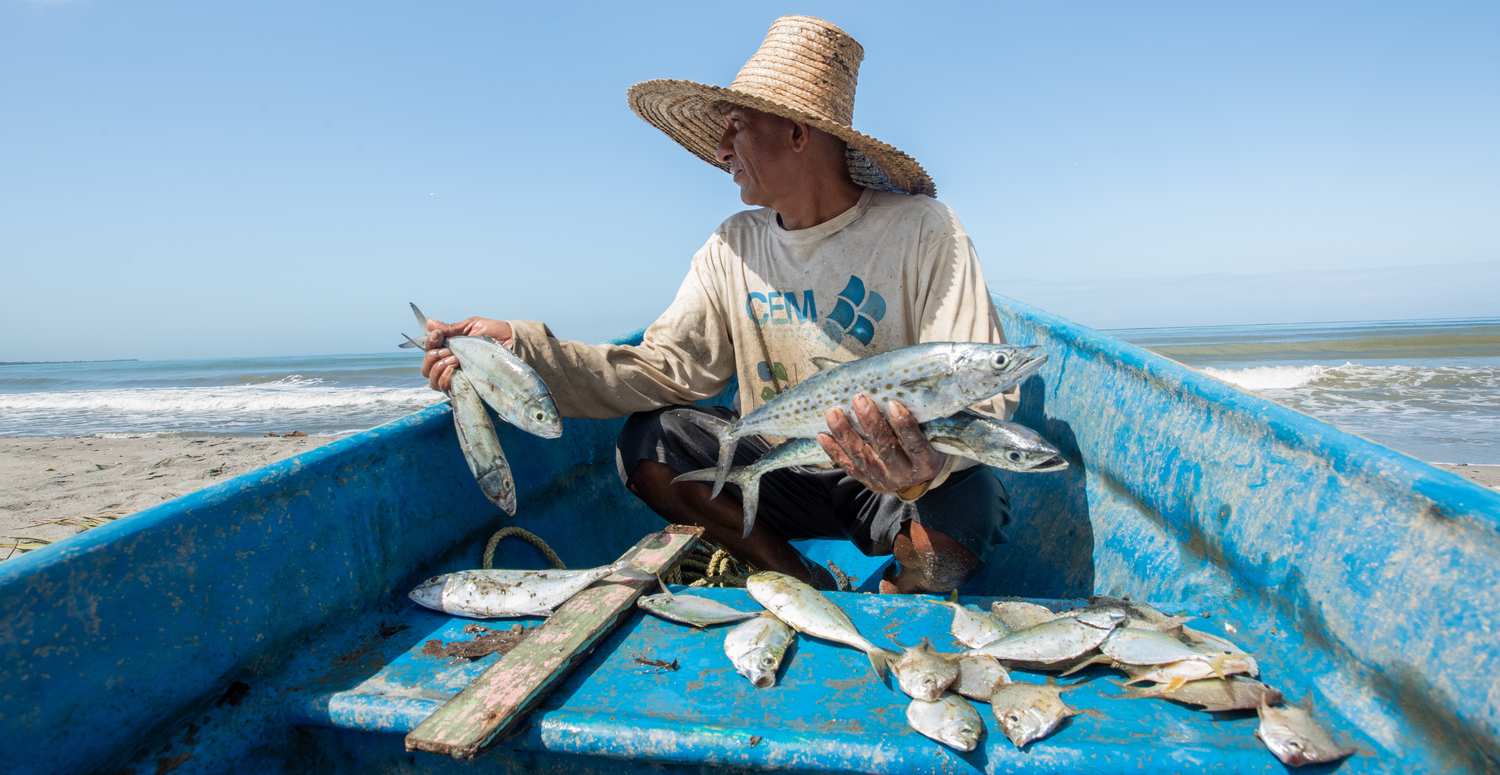
Central America: Honduras and Guatemala
New community campaign in Guatemala celebrates fishers: In May, Rare hosted the “Weaving the Future of Our Fisheries” event in the city of Puerto Barrios in Bahia de Amatique, Guatemala, bringing together 18 artisanal fishers, community leaders, youth, and strategic political actors across the Guatemalan Caribbean. The workshop marked the official co-creation and launch of the Pesca Unida campaign, a movement to strengthen artisanal fishing identity, promote gender inclusion, and reinforce community leadership in fisheries governance.
Increasing marine protected areas in Honduras: Rare submitted four technical files for the formal approval of new managed access areas in Santa Rosa de Aguán (309 km²), Balfate (153.6 km²), Omoa (426 km²), and Puerto Cortés (858 km²) in northern Honduras. Each submission includes detailed spatial delineations, biological and socioeconomic justifications, and governance frameworks developed and validated through months of participatory planning with municipalities, fisher organizations, and national authorities. Once approved, these declarations will bring Honduras to seven officially recognized marine protected areas, reinforcing the country’s regional leadership in small-scale fisheries reform.
The Philippines
Hosting the “Scaling Up Coastal Enforcement in the Philippines” forum: Coinciding with the International Day Against Illegal, Unreported, and Unregulated Fishing (IUUF) on June 5, Rare and the Department of Agriculture–Bureau of Fisheries and Aquatic Resources (DA-BFAR) co-hosted a forum in Quezon City in Manila on coastal law enforcement. The event gathered Bantay Dagat (fish warden) volunteers, local government officials, law enforcement agencies, nongovernmental organizations, and coastal community leaders to review progress and exchange best practices in fisheries and coastal law enforcement. Rare highlighted its community-driven initiatives in the Hinundayan municipality in Southern Leyte and Bais City and Amlan municipalities in Negros Oriental.
Championing mangrove protections with Global Mangrove Alliance: In June, Rare attended the “Mangrove Blue Carbon Roadmap to 2030 and Beyond” forum hosted by Global Mangrove Alliance. The event brought scientists, policymakers, conservationists, and community leaders to the Del Carmen municipality in Surigao del Norte to share knowledge on cutting-edge blue carbon research, practical policy frameworks, and community-centered solutions to create a comprehensive roadmap for protecting the Philippines’ mangrove ecosystems.
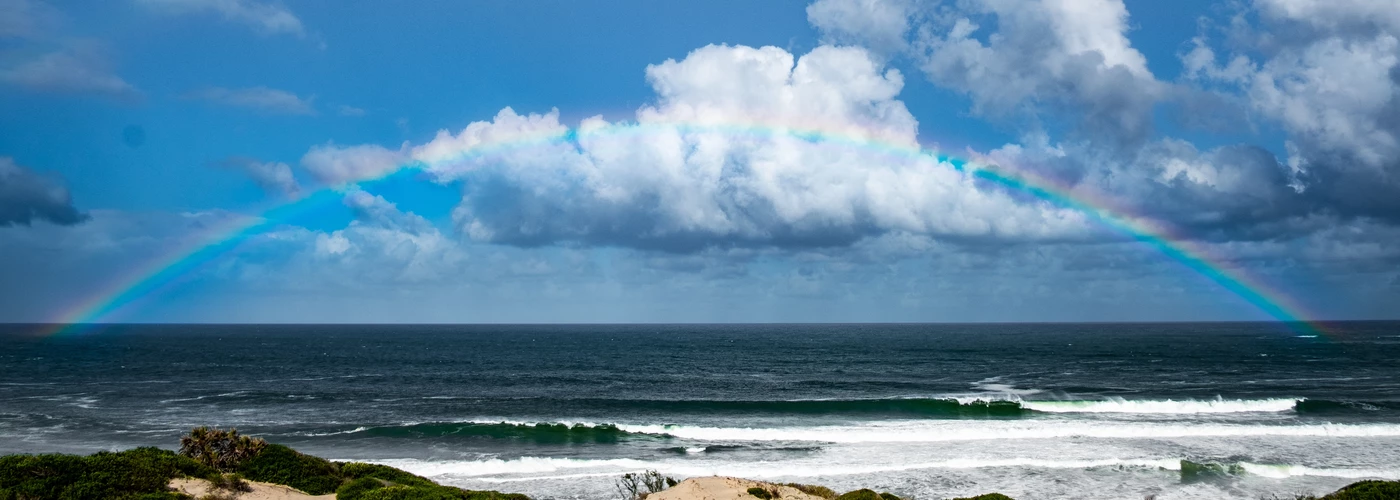
Mozambique
Rare Board of Trustees visits Mozambique: From June 21–28, Rare welcomed Board of Trustees members to Mozambique for a high-level field visit to deepen their understanding of Rare’s impact and opportunities for future growth. The delegation visited several key locations, including Maputo, the former Fish Forever site in Machangulo, Maputo National Park, and Ilha de Moçambique. By connecting directly with the people and places at the heart of Rare’s mission, the Board gained valuable insights that will inform future decision-making and reinforce Rare’s commitment to empowering coastal communities.
Rare and the Mozambican Government reaffirm strategic partnership to strengthen small-scale fisheries governance: On June 20, Rare CEO Brett Jenks met with the Secretary of State for Marine Affairs, Mr. Momade Juizo, and his senior staff in Maputo, Mozambique, reaffirming Rare’s longstanding role as a trusted strategic partner with the Mozambican government. The meeting underscored a shared commitment to sustaining and deepening the collaborative relationship between Rare and national authorities.
Launching 34 community-based, women-led microenterprises: Through the Blue Action Fund Wiliphiera project, Rare supported the legal establishment of 34 community-based, women-led microenterprises in Nampula Province, focused on fisheries value chain enhancement, including ice production, sustainable fishing gear, fish processing and sales, and other locally identified business models. A total of 1,257 direct beneficiaries, of which 80% are women, are engaged in these enterprises. Around $500,000 seed funding will be disbursed in the coming weeks, starting in Memba and Nacala Porto communities, followed by Ilha de Moçambique and Mogincual.
Rare supports the provincial gathering of small-scale fisheries: On July 17–18, Rare participated in the annual provincial gathering of organizations working on small-scale fisheries co-management in Nampula Province. The event brought together representatives from the provincial government, Rare, Wildlife Conservation Society, and various national and international nongovernmental organizations committed to advancing ecosystem-based adaptation and fisheries governance.
Local Adaptation Plans approved in Mogincual and Nacala Porto: With Rare’s support, the Mogincual and Nacala Porto districts updated and approved their Local Adaptation Plans (LAPs). Modeled after the successful LAP process in Memba, these plans reflect community-identified priorities and climate resilience strategies tailored to local coastal ecosystems. Their approval marks a key step in integrating climate adaptation into district-level planning.
Brazil
Annual meeting for strengthening leadership of the Mothers of the Mangrove network: From May 2 to 4, in Soure (PA), the Mothers of the Mangrove network held its annual leadership strengthening meeting to assess the network’s status and participating groups. Members presented the available budget and defined the investment strategy for the coming years, focusing on the seed fund, acceleration program, and the network’s collaborative store.
Integrated oyster bed monitoring in the Mãe Grande do Curuçá Resex: From May 26 to 29, Rare conducted ecological monitoring on eight natural oyster beds shared between the Extractive Reserves (RESEX) of Mãe Grande de Curuçá and São João da Ponta (PA). The objective was to monitor oyster population dynamics and assess ecological conditions of the beds, contributing to sustainable management and conservation of this important coastal ecosystem.
Mangrove ecological monitoring in the Soure Resex: In partnership with Rare, the International Union for Conservation of Nature (IUCN), and the Users Association of the Soure Marine Extractive Reserve (ASSUREMAS), the Chico Mendes Institute for Biodiversity Conservation (ICMBio) led mangrove ecological monitoring in the Soure Marine Extractive Reserve from June 16 to 19. The monitoring, part of ICMBio’s Biodiversity Monitoring Program, aims to generate standardized and continuous data to support coastal ecosystem management and conservation, contributing to evaluating the conservation unit’s effectiveness and mitigating environmental impacts.
High-Level Meeting discusses climate governance and Amazonian leadership ahead of COP30: On June 9, in Belém, Pará, Rare participated in the High-Level Meeting with the State Governor and subnational authorities. The activity was part of the official visit by the Climate High-Level Champions of the 30th United Nations Conference of the Parties (COP30) to the United Nations Framework Convention on Climate Change and the international Ambition Loop delegation. The goal was to strengthen collaboration between climate leadership and Brazilian subnational governments, focusing on local climate action, territorial bioeconomy, and promoting inclusive governance in the Amazon region. Rare emphasized the importance of coastal-marine municipalities’ leadership in the Amazon to address the climate crisis and build integrated solutions.
Indonesia
Sustainable funding for surveillance operations: In Southeast Sulawesi, 37 villages across nine marine areas with reserves recently committed IDR 104 million (USD 6,500) from their Village Government funds to support co-led marine surveillance and reporting. The funding covers surveillance boats, posts, and fuel for patrols, marking a strong step toward community-led marine protection and patrol enforcement. By integrating surveillance into village budgeting, communities demonstrate lasting ownership of their coastal resources. Rare will conduct Coastal 500 workshops over the next few months to help accelerate and scale support for community-led management operations by Village Leaders.
Ice block business supports Ngapa Towa fisheries management body: As a sustainable finance-based solution to support fisheries management bodies, Rare helped the Ngapa Towa fisheries management body in Buton District, Southeast Sulawesi, develop an ice block production business. The ice machine is expected to produce 300-500 kg of ice daily, supporting the fisheries management body and allocating profits to local fisheries management efforts. Business and government permits are being processed to ensure the community-led management group can fully operate its business.
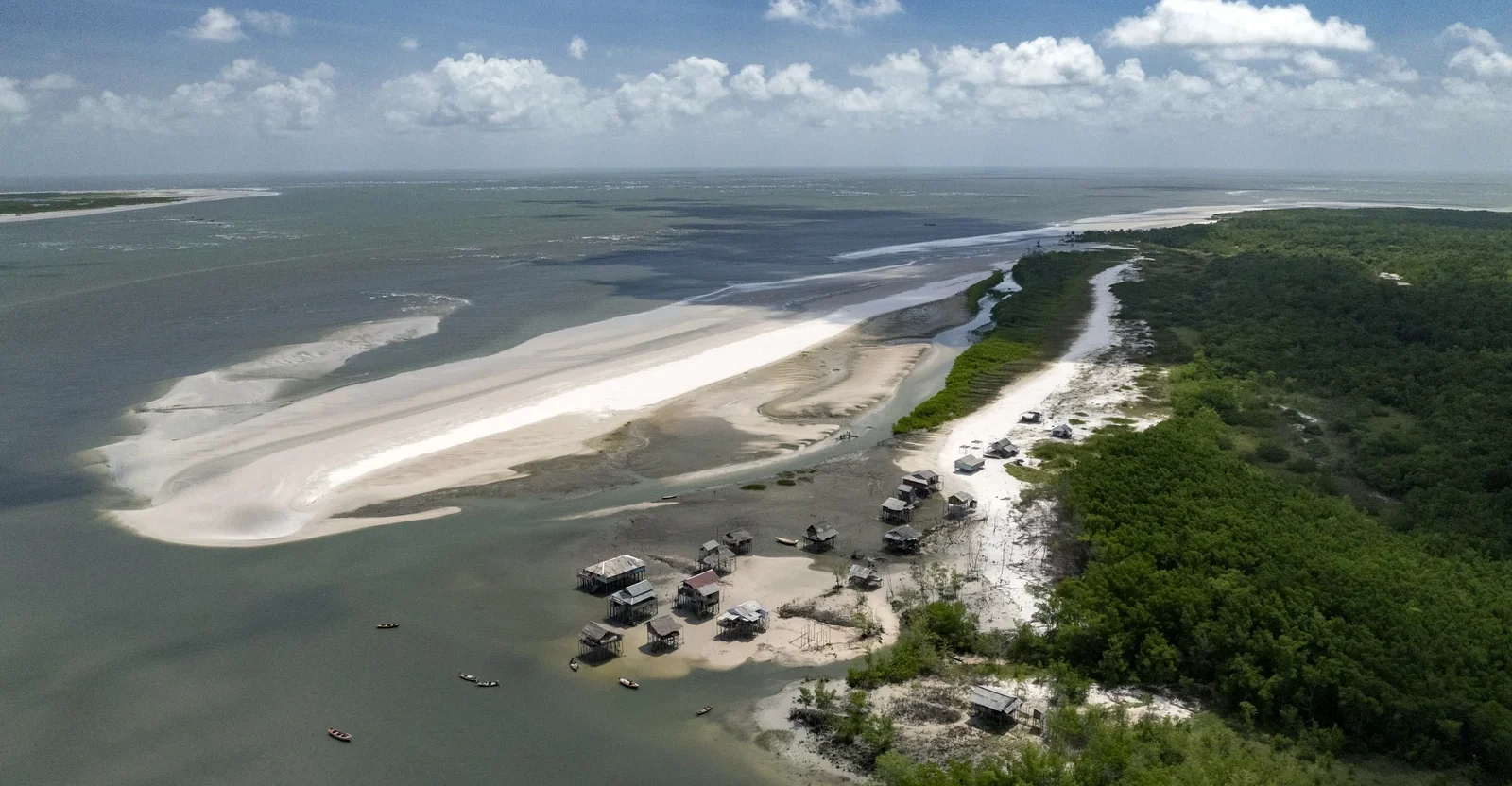
Coastal 500
Through global platforms like the UN Ocean Conference and the Global Mangrove Alliance, Coastal 500 leaders showcased how essential local governments and communities are to achieving global ocean and climate goals. Their unified advocacy—including official statements, high-level speaking engagements, and coalition-building—emphasized the need for devolved governance, inclusive project design, and sustained funding to empower frontline actors.
Across the Philippines, Indonesia, Brazil, and Honduras, Coastal 500 members influenced national policy, secured local commitments, and showcased scalable coastal solutions. In the Philippines, members pushed for the Bantay Dagat Bill and spoke out against a Supreme Court resolution affecting municipal waters, reinforcing support for small-scale fisheries. In Brazil, members engaged in climate action dialogues ahead of COP30, while in Honduras, Coastal 500 mayors held a groundbreaking bipartisan meeting with national lawmakers to protect nearshore waters for artisanal fishers. These actions reflect Coastal 500’s growing influence in shaping community-centered policies and aligning local action with global agendas.
Never miss an update!
Sign me up for occasional emails to learn more about Rare’s Fish Forever program and how I can support its mission.
I know I can unsubscribe at any time.
About Rare’s oceans program
Fish Forever: Rare’s Fish Forever program is a global leader in revitalizing our coastal seas and communities. The program helps coastal fishing communities worldwide to restore, protect, and manage their fisheries.
Goal: To deliver replicable and scalable community rights-based management across eight countries, using a global network of 500 local leaders to secure livelihoods for one million fishers, alleviate poverty, ensure food supply, and protect coastal ecosystems from chronic threats.
Fish Forever Countries: Philippines, Indonesia, Mozambique, Brazil, Honduras, Guatemala, and the Pacific Island countries of Palau and the Federated States of Micronesia
Fish Forever is possible thanks to the support of many, including the following current donors:
